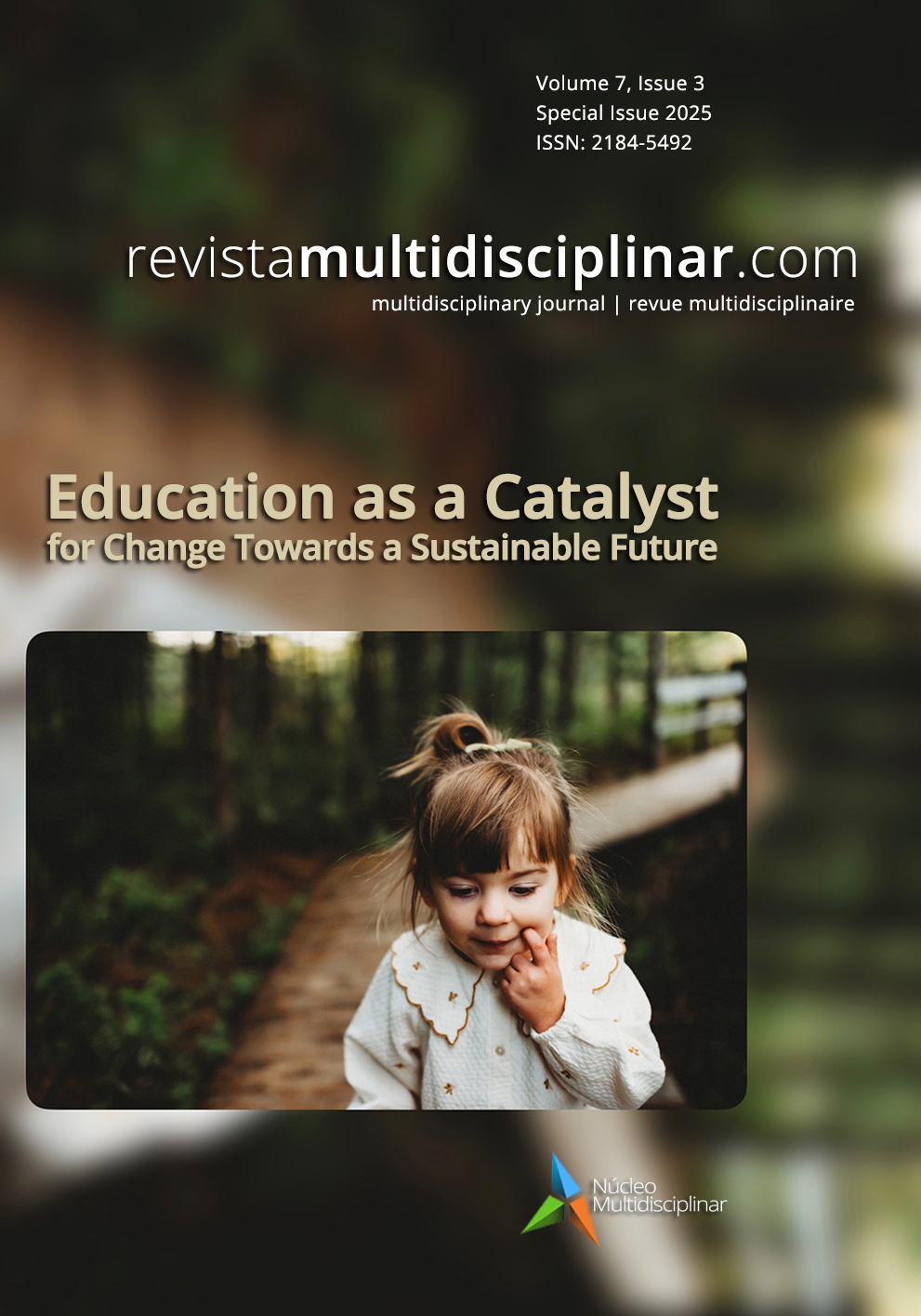Transformative Education as a Catalyst for Socio-Ecological Sustainable Change
DOI:
https://doi.org/10.23882/rmd.25302Palavras-chave:
alterações climáticas, sustentabilidade, biodiversidadeResumo
No século XXI, as injustiças socio-ecológicas continuam a persistir. Pior ainda: são agravadas pela manutenção de práticas industriais insustentáveis, pela inércia política e por estruturas económicas que dão prioridade aos ganhos de capital a curto prazo em detrimento da sobrevivência a longo prazo do nosso planeta. Como resultado, vivemos atualmente uma época marcada por crises ambientais sem precedentes: alterações climáticas, perda de biodiversidade, poluição atmosférica, desflorestação, subida do nível do mar, etc., que apenas contribuem para aumentar as desigualdades socioeconómicas. Neste contexto, tem havido um apelo crescente por parte de certos sectores da sociedade - como académicos, activistas, organizações comunitárias, povos indígenas e cidadãos preocupados - para que se reavaliem urgentemente as formas como lutamos pela sustentabilidade.Referências
Annan‐Diab, F., & Molinari, C. (2017). Interdisciplinarity: Practical approach to advancing education for sustainability and for the Sustainable Development Goals. The International Journal of Management Education, 15(2), 73-83. https://doi.org/10.1016/j.ijme.2017.03.006
Bardecki, M. & McCarthy, L. (2020) Implementation of the Bondar Report: A reflection on the state of environmental education in Ontario. Canadian Journal of Environmental Education, 23(3). pp. 113-131.
Doerr, M. (2004). Currere and the environmental autobiography: A phenonmenological approach to the teaching of ecology. Peter Lang.
Freire, P. (1970). Pedagogy of the oppressed. Herder and Herder.
Hungerford, H. R., & Volk, T. L. (1990). Changing learner behavior through environmental education. The Journal of Environmental Education, 21(3), 8-21. https://doi.org/10.1080/00958964.1990.10753743
Martusewicz, R. (2018). A pedagogy of responsibility: Wendell Berry for ecojustice education. Routledge.
Monroe, M. C., Plate, R., Oxarart, A., Bowers, A. W., & Chaves, W. A. (2017). Identifying effective climate change education strategies: a systematic review of the research. Environmental Education Research, 25(6), 791-812. https://doi.org/10.1080/13504622.2017.1360842
Noddings, N. (2017). Care ethics and education. In: N. Aloni, and L. Weintrob (Eds.), Beyond bystanders. Moral development and citizenship education. Rotterdam: SensePublishers. https://doi.org/10.1007/978-94-6351-026-4_14
Orr, D. W. (1992). Ecological literacy: Education and the transition to a postmodern world. SUNY Press.
Palmer, J. A. (1998). Environmental education in the 21st century: Theory, practice, progress and promise. Routledge.
Reis, G., & Guimaraes-Iosif, R. (2012). The death and life of a school-based environmental education and communication program in Brazil: Rethinking educational leadership and ecological learning. Applied Environmental Education & Communication, 11(3–4), 123–132. https://doi.org/10.1080/1533015X.2012.776906
Reis, G., & Sandhu, H.K. (2023). Expanding institutionalized learning spaces in/for science teacher education: the case of a community garden in Ottawa. Em Aberto, 35(115), 169-182.
Rousell, D., & Cutter‐Mackenzie, A. (2019). A systematic review of climate change education: Mapping the field and new directions. Environmental Education Research, 25(9), 1231-1263. https://doi.org/10.1080/13504622.2019.1644881
Singh, D., Maclure, R., & Reis, G. (2025). Transformative education for youth in Canada’s justice system: earning credits and gaining hope. Justice, Opportunities, and Rehabilitation, 64(3), 197–219. https://doi.org/10.1080/2997965X.2025.2467713
Stevenson, R. B. (2007). Schooling and environmental education: Contradictions in purpose and practice. Environmental Education Research, 13(2), 139-153. https://doi.org/10.1080/13504620701295726
Stibbe, A. (2009). The handbook of sustainability literacy: Skills for a changing world. Green Books.
Tilbury, D. (1995). Environmental education for sustainability: Defining the new focus of environmental education in the 1990s. Environmental Education Research, 1(2), 195-212. https://doi.org/10.1080/1350462950010206
Tilbury, D. (2011). Education for sustainable development: An expert review of processes and learning. UNESCO.
Wiek, A., Withycombe, L., & Redman, C. L. (2011). Key competencies in sustainability: A reference framework for academic program development. Sustainability Science, 6(2), 203-218. https://doi.org/10.1007/s11625-011-0132-6
Downloads
Publicado
Como Citar
Edição
Secção
Licença
Direitos de Autor (c) 2025 Marie-Ève Chartrand, Olfa Karoui, Giuliano Reis

Este trabalho encontra-se publicado com a Creative Commons Atribuição-NãoComercial 4.0.









